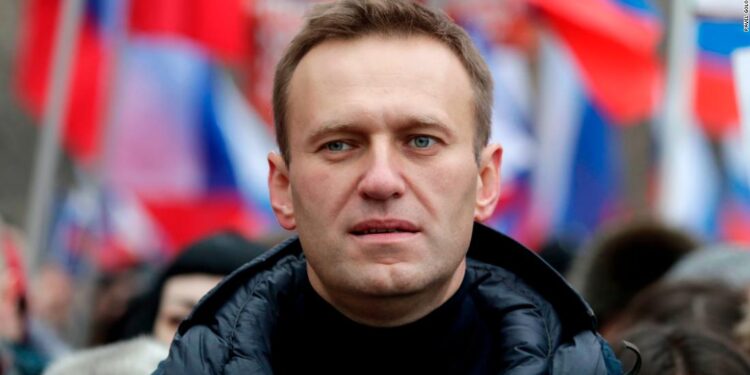Crédito: fuente
A medical plane has been sent by a German NGO to Omsk in the hopes of evacuating Navalny to Berlin for treatment at the Charite clinic.
When asked why moving Navalny might be dangerous, Chief Physician of Omsk Hospital Alexander Murakhovsky said Friday «anything could happen, even the saddest thing is possible.»
Navalny’s team claims that transport police in Omsk have detected a «deadly substance» that poses a threat to his life and the lives of those around him and say this is the reason why hospital authorities are not allowing him to be moved.
The director of Navalny’s Anti-Corruption Foundation (FBK), Ivan Zhdanov, claimed that while in the hospital «a member of transport police came in and showed his phone [to the physician] saying, ‘this substance was found.'»
Zhdanov claimed the head physician replied: «Well, okay it was found [so what?]. I have no information other than that.»
Zhdanov said he asked the police officer what the substance was and claims he was told: «It’s a secret of the investigation, we can’t tell you but it’s a deadly substance. This substance poses a threat not just to Alexey’s life but also to others. Everybody around should wear protective suits.»
«That’s all she said. What substance is it? We don’t know yet,» Zhdanov told reporters at an impromptu news conference.
Speaking at the same news conference, the Russian opposition leader’s wife Yulia Navalnaya said the hospital authorities were refusing to allow Navalny to be transported and she believed they are doing so to cover up signs of a so-called «chemical substance.»
«They refuse to transport him. They say that they can’t do it now and that he is not transportable even though two hours ago we were preparing documents for his transportation. That’s why the transport police were here actually.
«After that two hours passed, and [the doctors] refuse to give Alexey to us so that we can transport him.»
Navalnaya added: «We think of course that it is done to make the chemical substance that is in Alexey’s body disappear. That is why he is not given to us of course, so that the substance residues disappear.»
Navalnaya said that «he [Navalny] is not in a very good state and we of course cannot trust this hospital and we demand for Alexey to be given to us, so that we could have him treated in an independent hospital whose doctors we trust.»
On Friday, Anatoly Kalinichenko, deputy head physician of the Omsk emergency hospital, said doctors did not believe Navalny was poisoned.
No poisons were found in Navalny’s blood or urine so «we don’t believe that the patient suffered poisoning,» Kalinichenko told local journalists in a news conference.
«Poisons or traces of their presence in the body have not been identified. Probably, the diagnosis of ‘poisoning’ remains somewhere in the back of our minds. But we do not believe that the patient suffered poisoning,» he added.
When asked whether Navalny might be allowed to travel to Berlin, Murakhovsky said Omsk hospital had not had any contact from Charite but it was in contact with hospitals in Moscow.
«I do not think that specialists from the Burdenko and Pirogov [hospitals in Moscow] are worse than the hospital you mentioned. If the patient was in a stable state, the specialists of our clinic and the doctors concilium that we held together wouldn’t object to it [his transportation]. But for today transportation is premature.»









